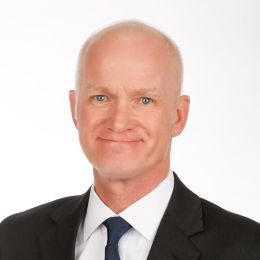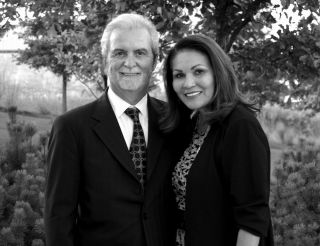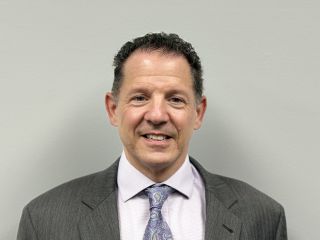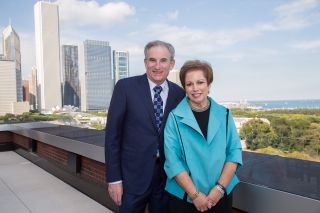John and Mae Calamos Stuart School of Business Dean Endowed Chair
Rich Klein
Rich Klein joined Illinois Institute of Technology as the John and Mae Calamos Stuart School of Business Dean Endowed Chair in January 2025. He previously served as vice chancellor of institutional effectiveness and student success at the University of Nebraska Omaha and held dual faculty appointments in the College of Business Administration as well as the College of Information Systems & Technology. He also served as associate dean of Florida International University’s R. Kirk Landon Undergraduate School of Business, interim director of the college’s School of Accounting and chair of the Department of Information Systems and Business. As a member of the faculty of the Wilbur O. and Ann Powers College of Business at Clemson University, he served for more than five years as the graduate programs director.
Klein’s research examines inter-organizational information systems. He holds a doctorate in business administration with a concentration in computer information systems from Georgia State University J. Mack Robinson College of Business, a master’s in technology management from Stetson-Hatcher School of Business at Mercer University, and both a bachelor’s and master’s in economics from Boston University. Klein has also completed the Institute for Educational Management as well as the Institute for Management and Leadership Education programs at Harvard Graduate School of Education. Klein served on the executive board of The Salvation Army Western Division and the executive board of the Greater Miami Chamber of Commerce. Klein also possesses more than a decade of industry experience with automatic data processing and the First Data Corporation.
Klein received a commission through the U.S. Army Reserve Officer Training Corps, completed initial entry rotary wing flight training, and served for a decade as an aviation officer and pilot in the Army National Guard.
John P. Calamos Sr. (ECON ’63, M.B.A. ’70) and Mae Calamos
John P. Calamos Sr. (ECON ’63, M.B.A. ’70) is chairman and global chief investment officer of Calamos Investments, the firm he founded in 1977. With origins as an institutional convertible bond manager, the firm has grown into a global asset management firm with major institutional and individual clients around the world.
A pioneer in the use of convertible securities, Calamos launched one of the first convertible funds in 1985 as a way to manage risk for clients in volatile times. He also established one of the first liquid alternative funds in 1990, reflecting a focus on innovation that continues to this day.
With more than 50 years of industry experience, Calamos is often quoted as an authority on risk-managed investment strategies, markets, and the economy. He is a frequent speaker at investment seminars and conferences around the world, and appears regularly on CNBC, Bloomberg TV, and Fox Business Channel. He has authored two books: Investing in Convertible Securities: Your Complete Guide to the Risks and Rewards and Convertible Securities: The Latest Instruments, Portfolio Strategies, and Valuation Analysis. His biography, The Sky's the Limit: Lessons in Service, Entrepreneurship, and Achieving the American Dream, was published in April 2025.
Calamos received a bachelor’s in economics and a Master of Business Administration in finance from Illinois Tech. A graduate of the university’s ROTC program, Calamos served in the United States Air Force and retired as a major after five years of active duty and 12 years in the reserves.
As an Illinois Tech trustee, Calamos serves on both the Board Chair Executive Council and the Investment Committee, as well as the Stuart School of Business Board of Advisors. Along with his wife, Mae, Calamos has been a loyal and generous supporter of Illinois Tech, providing funding for two endowed chairs as well as gifts for scholarships, the Interprofessional Projects (IPRO) Program, Stuart School, and Illinois Tech’s most pressing strategic priorities. In 2011 the family was inducted into the Philip Danforth Armour Society with special recognition for gifts exceeding $10 million.
In 2022 Calamos delivered the keynote address at the university’s 153rd Commencement Main Ceremony and received Illinois Tech’s highest academic honor: the Honorary Doctor of Management Science, honoris causa. He also holds an honorary doctorate in humanities from Hellenic College Holy Cross.
Carol and Ed Kaplan Armour College Dean of Engineering Endowed Chair
Lou Cattafesta
Lou Cattafesta joined Illinois Institute of Technology in August of 2022 as the inaugural John G. and Jane E. Olin Endowed Department Chair in Mechanical, Materials, and Aerospace Engineering. Prior to joining Illinois Tech, he was a University Eminent Scholar Endowed Professor in the Department of Mechanical Engineering at Florida A&M University-Florida State University College of Engineering. He received a bachelor’s in mechanical engineering in 1986 from Penn State University, a master’s in aeronautics from Massachusetts Institute of Technology in 1988 via an Air Force Research in Aero Propulsion Technology Fellowship, and Ph.D. in mechanical engineering in 1992 from Penn State University.
In 1992, he joined High Technology Corporation as a research scientist at the National Aeronautics and Space Administration (NASA) Langley Research Center, where his research focused on supersonic laminar flow control and pressure- and temperature-sensitive paint measurement techniques. In 1996, he was awarded the NASA Team Excellence Award for his contributions. At that time, he became involved in active control of flow-induced cavity oscillations, which sparked his current research interests in active flow control and aeroacoustics. He joined the University of Florida as an assistant professor in 1999, was promoted to associate professor in 2003, and reached the rank of full professor in 2008 before joining Florida State University in 2012.
Funding for his research has been provided by grants from NASA, Air Force Office of Scientific Research, Office of Naval Research, National Science Foundation, Boeing, Lockheed-Martin, General Electric, and Gulfstream, among others. Cattafesta has co-authored four American Institute of Aeronautics and Astronautics (AIAA) best conference papers, winning awards in 2001, 2002, and two in 2004. He is the author/co-author of seven U.S. patents, seven book chapters, and more than 100 archival journal publications. Cattafesta is a fellow of the AIAA, American Society of Mechanical Engineers, American Physical Society, and the Royal Aeronautical Society. He is also a member of the Acoustical Society of America. He is currently an associate editor for Experiments in Fluids.
Ed (ME ’65, Hon. Ph.D. ENG ’23) and Carol Kaplan
Edward L. Kaplan, co-founder of Zebra Technologies, was a distinguished alumnus, visionary entrepreneur, and steadfast leader whose philanthropy and service have profoundly shaped Illinois Institute of Technology. A pioneer in barcode and logistics technology, he brought distinction to his profession and alma mater through sustained innovation and entrepreneurial achievement.
Since his election to the Illinois Institute of Technology Board of Trustees in 1993, Kaplan provided decades of exemplary governance, serving on the Board Chair Executive Council and as chair of the Board of Advisors for the Ed Kaplan Family Institute for Innovation and Tech Entrepreneurship. Together with his wife, Carol, he advanced a shared vision for experiential education, committing $11 million to establish the state-of-the-art Ed Kaplan Family Institute for Innovation and Tech Entrepreneurship in 2018 and $5.5 million in 2023 toward the creation of the Kaplan Student Fabrication Center—investments that foster world-class environments for discovery, innovation, and entrepreneurship.
The Kaplans’ philanthropy also includes the Kaplan Foundation Endowed Scholarship and the Carol and Ed Kaplan Armour College Dean of Engineering Endowed Chair, strengthening both student success and academic leadership. In 2005 the family was inducted into the Philip Danforth Armour Society with special recognition for gifts exceeding $10 million.
Kaplan’s honors include Illinois Tech’s Award of Merit (2000), Alumni Medal (2011), the prestigious national Tau Beta Pi Distinguished Alumnus Award (2021), and an honorary Doctor of Engineering (2023), honoris causa.





